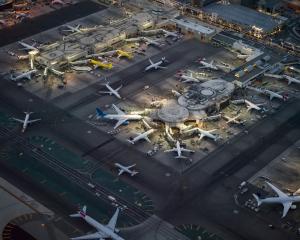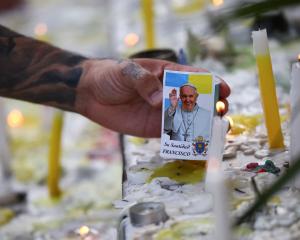Five years ago this month, the "Arab Spring'' got under way with the non-violent overthrow of Tunisia's long-ruling dictator, Zine el-Abidine Ben Ali.
He dared not order the army to open fire on the demonstrators (because it might not obey), he was running out of money, and eventually he flew off to Saudi Arabia to seek asylum.
In an Arab world where satellite television broadcasts and social media had effectively destroyed the power of the censors, practically everybody else spent the four weeks of civil protest in Tunisia tensely watching what the Tunisians were doing.
When the Tunisian revolutionaries won, similar non-violent demonstrations demanding democracy immediately broke out in half a dozen other Arab countries.
It felt as if huge change was on the way, because the world had got used to the idea that non-violent revolutions spread irresistibly, and usually win in the end.
The ground-breaking "People Power'' revolution in the Philippines in 1986, for example, was followed in the next three years in Asia by non-violent democratisation in South Korea, Taiwan, Thailand and Bangladesh, and failed attempts at non-violent revolution in Burma and China.
Similarly in eastern Europe, the fall of the Berlin Wall and the collapse of the Communist regime in East Germany in 1989 was followed by non-violent democratisation in all the Soviet-dominated "satellite'' countries by the end of the year.
The Soviet Union itself broke up in 1991, and some of its component parts also became democratic.
Non-violence was a magic potion, and people assumed it was bound to work in the Arab world, too.
They were wrong.
The non-violent movements demanding democracy spread just as fast, but their only lasting success was in Tunisia.
Egypt and Bahrain are back under autocratic rule, and Yemen and Syria are both being devastated by civil wars and large-scale foreign military intervention.
Libya is also being torn by civil war (although the revolution there was never non-violent).
You can hardly blame people for trying to get rid of the old regimes - they were pretty awful - but beyond Tunisia the endings were uniformly bloody and tragic.
Was there some systemic reason for this, or was it just a lot of bad luck?
There is great reluctance to pursue this question, because people are afraid that the answer has something to do with the nature of Arab society or Islamic culture.
They should not worry.
Islam is not incompatible with democracy.
Indonesia, the most populous Muslim country, had a non-violent democratic revolution in 1998 and continues to be a thriving democracy today.
Turkey has been democratic for decades, although Recep Tayyib Erdogan, the current president, is doing great damage to the country's democratic institutions.
Pakistan and Bangladesh are both democracies, although turbulent ones.
These four countries alone account for almost half the world's Muslims.
In the Arab world democracy is a much scarcer commodity, but it does exist, most notably in Tunisia itself.
Several other Arab countries, like Jordan and Morocco, have a significant democratic element in their politics, although the king retains much power.
So what went wrong with the "Arab Spring''?
In the case of Bahrain, the problem was that the majority of the population is Shia, but the ruling family is Sunni and saw the democratic movement as an Iranian plot.
Neighbouring Saudi Arabia saw it the same way, and sent the Saudi army in to crush the "plot''.
Yemen was a lost cause from the start, since there was already an incipient civil war in the country.
Now it is a full-scale war, with foreign military intervention by a Saudi-led coalition that includes half the countries in the Arab world, and the non-violent protesters are busy hiding from the bombs.
Syria was a hard case since the Ba'athist regime, in power for more than 40 years, had accumulated a great many enemies.
The Alawite (Shia) minority who dominated the regime were terrified that they would suffer from revenge-taking if they lost power, and were willing to fight to the last ditch to keep power.
But it is also true that Turkey and Saudi Arabia, and later the United States as well, encouraged an armed uprising in Syria that undercut the entire non-violent movement.
It probably would not have succeeded anyway, but it really did not get tried.
And in Egypt, the non-violent revolution actually won.
The victory did not last long.
The Muslim Brotherhood won the election in 2012, and the urban, secular minority who had made the revolution panicked.
They asked the army to intervene, and the army was happy to oblige - so now the army runs the country again, after a massacre of non-violent Muslim Brotherhood protesters in 2013 that was probably worse that the slaughter on Tienanmen Square in 1989.
Egypt is by far the biggest country in the Arab world.
If it had not thrown its democracy away, about a third of the world's Arabs would be living in a democracy today.
It was very bad luck, but non-violent revolution is still a viable technique - and democracy is still just as suitable for Arabs as it is for Poles, Peruvians or Pakistanis.
It is just going to take a little longer than we thought in 2011.
● Gwynne Dyer is an independent London journalist.












